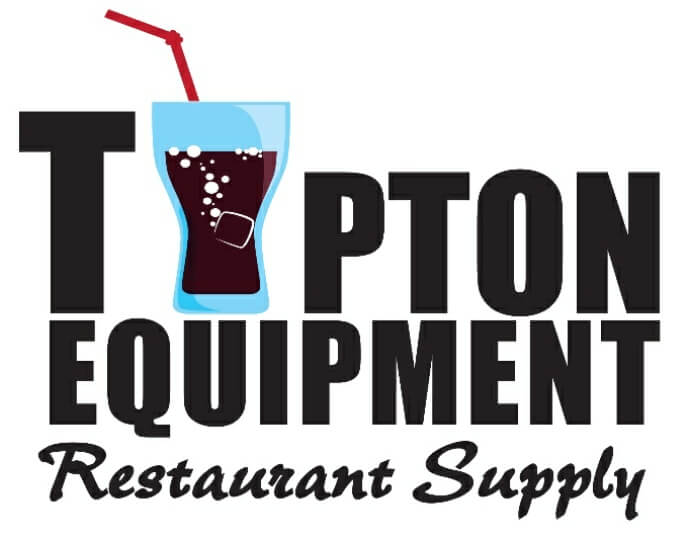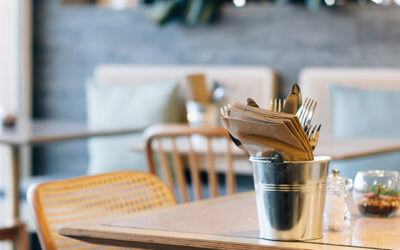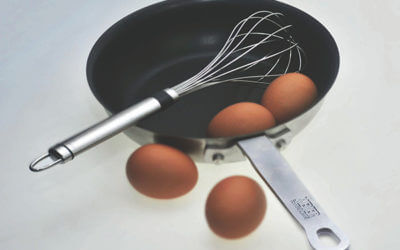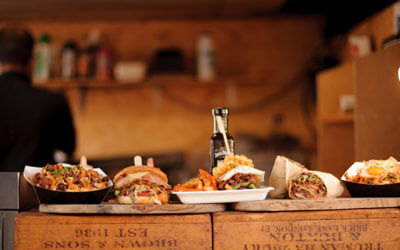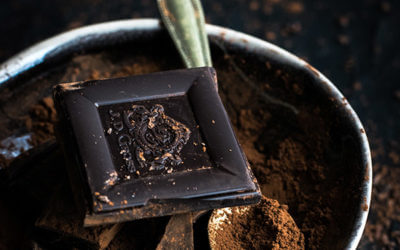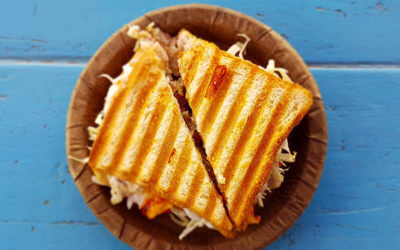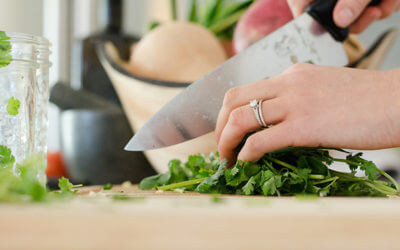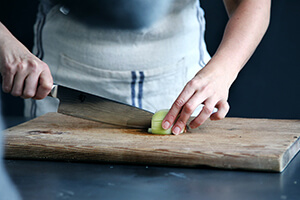Safety Tips for Your Commercial Kitchen
August 29, 2019Safety tips for your commercial kitchen to keep it running smoothly and keep disease out.
A well-run commercial kitchen means maintaining the utmost cleanliness and safe conditions for your food preparation. If you were to contaminate an area with Salmonella or other dangerous bacteria accidentally, your customers and employees could get very sick. You also need to know how to pass any checks done by the local health department, so your restaurant can operate with full certification.
Ask Yourself, Is My Commercial Kitchen Safe?
Preventing food preparation area accidents:
- Do my employees use a stool or footrest to avoid prolonged standing?
- Do I make stools and footrests available to my kitchen workers?
- Do we rearrange food prep tasks to avoid overreaching?
- Do we use mechanical kitchen appliances for chopping, dicing, or mixing foods to avoid repetitive stress injuries?
- Do we provide approved uniforms, hairnets, and gloves for our employees?
- Do our employees wear uniforms, hairnets, and gloves?
Preventing lifting accidents
- Have my workers been trained to lift with their legs not with their backs, whether it is a light or heavy load?
- Are workers trained to bring bulky items close to their chest so they can stay balanced and eliminate straining?
- Are employees trained to use tilt containers or get help when lifting or pulling fluids or bulky items?
- Are my employees empowered to point out safe and proper lifting techniques to fellow employees?
- Do supervisors take the lead by setting the right example?
Preventing slips, trips, and falls
- Is the kitchen staff trained to mop up spills and wet areas immediately?
- Is kitchen, supply areas, freezer floors, and walkways kept free of clutter?
- Is the proper ladder training provided?
- Do employees know how to use ladders correctly to avoid overreaching and overextending themselves?
- Are employees required to wear proper slip-resistant footwear?
- Is the kitchen floor swept and mopped each night?
Proper Handling
All produce needs to be washed and scrubbed thoroughly before being served. Washing can be done right before serving, as some veggies wilt if removed too far ahead of time. Never use soap or bleach on produce. Coldwater is best. A produce brush for harder items like turnips, carrots, or potatoes is recommended.
Conduct Self Inspections
A good commercial kitchen manager conducts regular self-inspections so that he can make sure to spot problems before they get out of hand. Preparation is especially the case since many kitchen inspections conducted by the authorities are conducted unannounced, making it extra essential to stay prepared.
Uh Oh. Handling Restaurant Disaster Recovery
No one wants to think about a major disaster hitting their restaurant. Unfortunately, it can happen at any time. In Arkansas, large areas (including Little Rock) were declared disaster areas as recently as last summer. Severe flooding, wind damage, and tornados are...
Restaurant Supplies You Need: Technology in Your Business
Every business is impacted by technology, and restaurants are no exception. There are dozens of ways to use technology to build your business, improve your efficiency, and serve customers better. Sometimes restaurant owners feel like they’re too busy to implement new...
Key Restaurant Equipment for a Fast-Casual Restaurant
Fast-casual dining has changed how America eats and has impacted what people expect in terms of convenience, price, and food quality. Generally, fast-casual food is affordable and higher-quality than pure fast food. It’s a step above a McDonald’s, without the price or...
Equipment for Your Restaurant: Choosing a Restaurant Concept
Some people who start a restaurant know exactly what they want. They either buy an existing restaurant with a concept, or they create the menu based on their family traditions or ethnic flair. However, not everyone who wants to start a restaurant knows exactly what...
Restaurant Supplies: Using Herbs to Add Flavor to Your Dishes
If you’re looking for new ways to attract people to your restaurant, consider the ways you can add flavor without adding fat or calories. Consumers are more and more concerned about the quality of what they eat, both at home and in a restaurant. Home cooks generally...
Commercial Kitchen Debate: Stainless Steel vs. Non-Stick Pans
If you run a commercial kitchen, you probably have a lot of ways of doing things that just seem right to you. For whatever reason, you decided between a gas and electric stove. You made decisions about dishware. And you probably have a position on the stainless steel...
Restaurant Equipment: How to Handle Gluten Allergies
In the last five years, you’ve probably seen a dramatic increase in the number of restaurant customers you have that are avoiding gluten. Some of them simply don’t like it, and others have a life-threatening reaction if they eat it. As a restaurant owner, you want to...
Reduce Food Waste: Proper Kitchen Equipment and More
Food waste is a reality in any commercial restaurant, but it doesn’t have to be accepted blindly. Too many restaurant owners or head chefs feel as though there is nothing they can do about this waste. Fortunately, there’s a lot you can do to reduce food waste in your...
Restaurant Supplies: Furnishing an Outdoor Sitting Area
Outdoor dining is a very enjoyable experience for many people. In Little Rock the weather is generally pleasant, although humidity may make it hard to eat outside on the hottest summer days. Adding an outdoor sitting area to your restaurant can be a great way to...
Commercial Kitchen Fun: The Wonder of Chocolate
If there’s anything that almost everyone loves as much as coffee, it’s chocolate. In fact, there are multiple celebrations of chocolate each year. Chocolate Day is on July 7th, because historically that’s when chocolate was first brought to Europe in 1550. Don’t miss...
Cooking Equipment Spotlight: Safe Indoor Grilling
Indoor grilling is a great way for your restaurant to delight customers without having to run a big charcoal operation out back. There’s nothing like grilled meat and vegetables to put a great aroma in the air and encourage hungry diners to dig in. There are two...
Restaurant Supplies: How to Properly Store Spirits & Drinks
Spirits and other alcoholic drinks can add a lot to your bottom line as a restaurant. These drinks often have high margins, and people order more than one frequently. This leads to more revenue for your restaurant and better tips for your servers! In order to make the...
Going Green Can Benefit Your Commercial Kitchen
Do you feel like running a restaurant means that you have to give in to wasted food, materials, and even money? Great news – you don’t. If you want to build your business, consider going green! You can structure your commercial kitchen to help the planet while also...
Key Foodservice Equipment for Your Food Truck
Are you ready to start a food truck? While the restaurant industry climbs slowly at roughly two percent a year, the food truck industry has been booming. Growing nearly 8% per year over the last five years, trucks are one of the fastest growing parts of the food...
Cooking Equipment Spotlight: The Right Knife for the Job
Not everyone who’s involved in a commercial kitchen has had professional training as a chef. As a result, not everyone is aware of how to choose the best cooking equipment for each job. Having the right knife is one of the most vital choices you can make during food...
